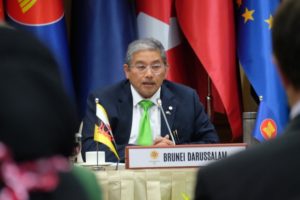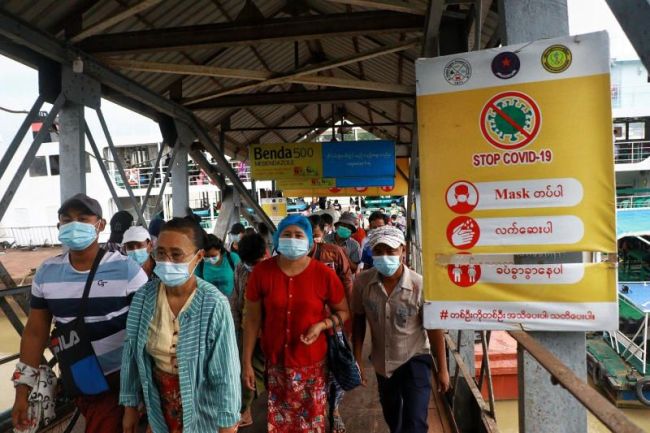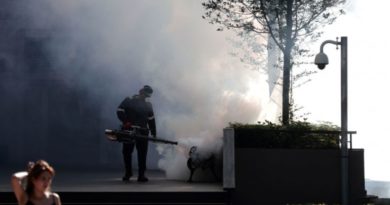DEMOCRACY-PRESS FREEDOM: COVID-19 : YANGON- Myanmar Covid-19 infections keep on soaring / Most ATMs are empty

YANGON (XINHUA) – The number of COVID-19 infections has risen to 322,838 with 11,262 deaths in Myanmar on Friday night, according to a release from the Ministry of Health. More details in Sunday’s Borneo Bulletin.
,
Minister to discuss cessation of violence, mediation in Myanmar

Minister of Foreign Affairs II Dato Seri Setia Awang Haji Erywan bin Pehin Datu Pekerma Jaya Haji Mohd Yusof, appointed as the special envoy to Myanmar by ASEAN earlier this week, called for full access to all parties when he visits the politically-divisive country where the military staged a coup and grabbed power from a democratically elected government. More details in Sunday’s Borneo Bulletin.
.
People in Myanmar wait hours to withdraw cash, but most ATMs are empty


YANGON (NYTIMES) – The customers, desperate for cash, began lining up at the ATM at 3.30am. By dawn, the queue had swelled to more than 300 people. By noon, when temperatures had reached over 35 deg C, many were still waiting, hoping this would be the day they could finally withdraw money from their own bank accounts.
Since the military seized power in a coup six months ago, Myanmar has been crippled by a cash shortage.
To help prevent a run on the banks, randomly selected ATMs are stocked with cash daily, and withdrawals are capped at the equivalent of US$120 (S$160).
The economic fallout has had sweeping consequences. With cash in short supply, depositors cannot withdraw their savings, customers cannot pay businesses, and businesses cannot pay their workers or creditors. Loans and debts go uncollected.
The value of the kyat, Myanmar’s currency, has tumbled 20 per cent against the dollar.
Fewer than 100 ATMs now have cash each day across the South-east Asian nation. Currency hoarding has become widespread, and many businesses will accept only cash, not digital bank transfers.
A new breed of currency broker has sprung up to provide cash in exchange for online transfers at a cost of 7 per cent-15 per cent. In effect, Myanmar now has two values for its money: a higher value for cash and a lower value for online funds.
Experts warn that the country is plunging into a full-blown financial crisis.
Confidence in the government and private banks has evaporated with the coup and the killing of at least 945 people, most of them shot by soldiers during demonstrations.
An anti-coup protest movement and general strike have paralysed much of the economy, including closing nearly all of the country’s bank branches in the first months after the military takeover. Missteps by the junta, such as restricting online payments, have contributed to the crisis.
“The value of Myanmar’s currency is going down, but it hasn’t hit bottom yet,” said Hein Maung, an economist and former researcher at an economic policy think-tank in Yangon. “The crisis can only be resolved with political change.”
One goal of the withdrawal restrictions is to reduce the amount of cash reaching the pro-democracy protest movement.












